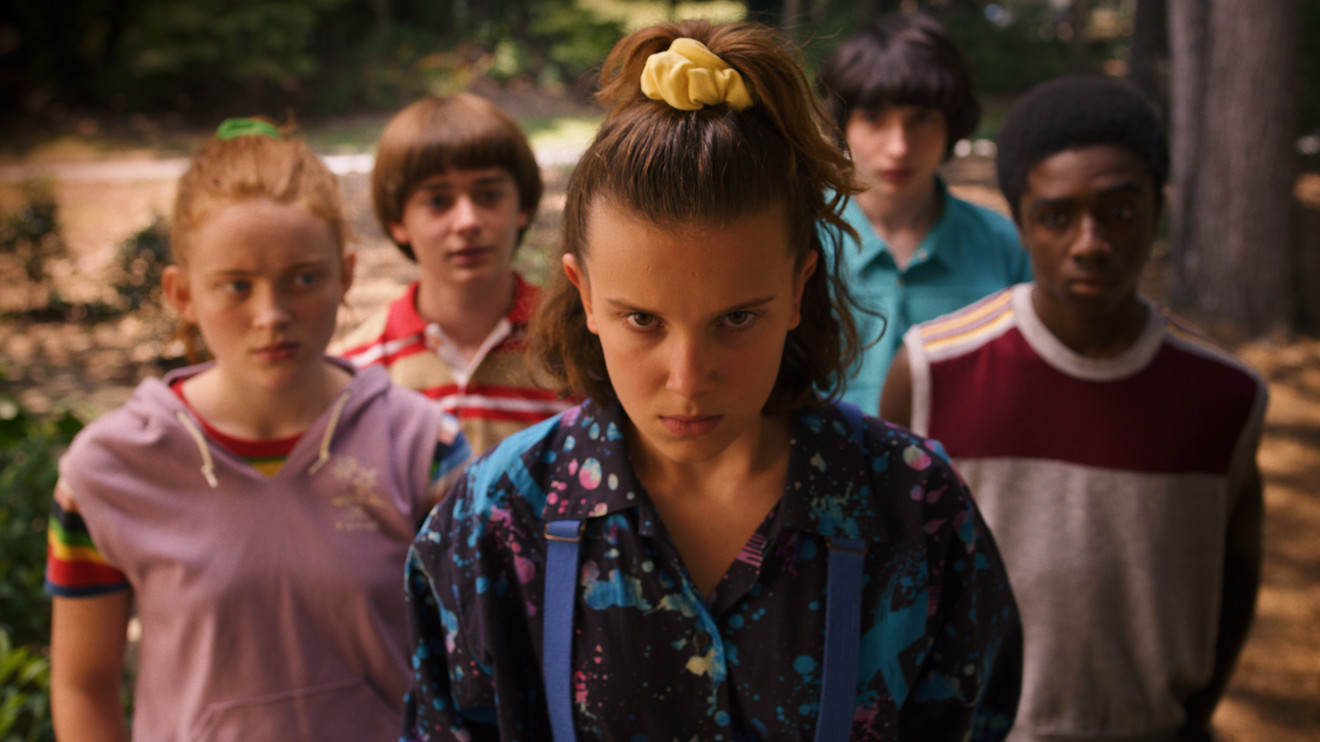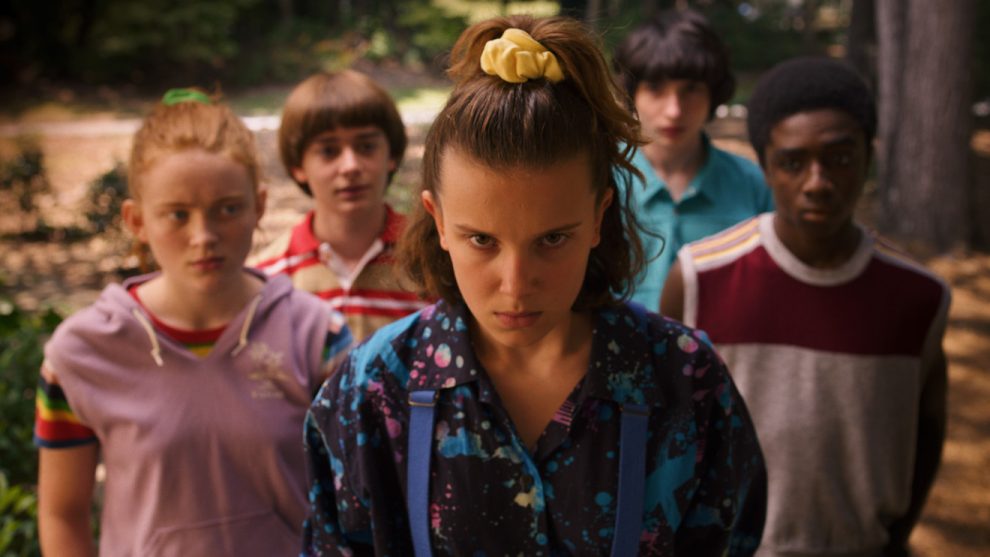
Georgia’s pending abortion ban is shaking the Peach State’s booming film and TV industry.
Netflix said that it would “rethink” its entire investment in the state, where the streaming giant has filmed its hit series “Stranger Things” and the upcoming sci-fi show “Raising Dion” starring Michael B. Jordan, if the state’s anti-abortion law is enacted next year. It is the first major studio to speak out against Georgia passing the abortion ban earlier this month.
“We have many women working on productions in Georgia, whose rights, along with millions of others, will be severely restricted by this law,” Ted Sarandos, Netflix’s NFLX, +0.11% chief content officer, told Variety. “It’s why we will work with the ACLU and others to fight it in court. Given the legislation has not yet been implemented, we’ll continue to film there, while also supporting partners and artists who choose not to. Should it ever come into effect, we’d rethink our entire investment in Georgia.”
See: Netflix to ‘rethink’ filming in Georgia if abortion law goes into effect
It’s the latest entertainment-industry heavyweight to draw a line in the sand — or, more accurately, in the Georgia clay.
Earlier this month, Georgia Gov. Brian Kemp signed one of the nation’s most restrictive anti-abortion laws, which bans the procedure once a fetal heartbeat is detected, which can be as early as six weeks — before many women even realize that they are pregnant. Georgia joins Alabama, Kentucky, Mississippi and Ohio in recently signing these so-called “heartbeat bills” that are designed to challenge the Supreme Court’s landmark 1973 Roe v. Wade decision, which legalized abortion nationally.
So now many pro-abortion-rights supporters in Hollywood are retaliating by pledging to pull their film and TV projects from the state. Georgia has become a film hub jokingly known as “Y’allywood” after implementing a 30% tax rebate in 2008. This has led to the construction of Pinewood Atlanta Studios’s 18 soundstages and 400-acre backlot, where blockbusters like the Disney-owned Marvel Cinematic Universe’s “Black Panther” and “Avengers: Endgame” have been filmed, as well as the Lionsgate “Hunger Games” trilogy. The AMC zombie hit “The Walking Dead” films in Senoia, Ga. More than 300 new businesses have relocated or expanded into Georgia to support the entertainment-industry boom. And state officials estimate that 455 film and projects were completed in Georgia last year, pumping $9.5 billion into the local economy, including $2.7 billion in direct spending.
In fact, the movie and television industry accounts for more than 92,100 jobs and almost $4.6 billion in total wages in Georgia, according to the Motion Picture Association of America, a trade association which represents the five major film studios in Hollywood. They include Walt Disney Studios DIS, -0.13% , the Viacom-owned VIA, -0.63% Paramount Pictures, Sony Pictures SNE, +0.39% , the Comcast-owned CMCSA, -0.47% Universal Pictures, AT&T’s T, -1.05% Warner Bros. and Netflix. Georgia is now the third-largest film and TV production center in the nation, behind California and New York.
Netflix was the first studio to call out the ban. Indeed, MarketWatch also reached out to those studios, as well as Hulu and Amazon Studios AMZN, +0.72% plus Pandora Radio, which has expanded its operations in Georgia. They have yet to respond, or referred MarketWatch to the MPAA, whose chief spokesman Chris Ortman responded with the following statement: “Film and television production in Georgia supports more than 92,000 jobs and brings significant economic benefits to communities and families. It is important to remember that similar legislation has been attempted in other states, and has either been enjoined by the courts or is currently being challenged. The outcome in Georgia will also be determined through the legal process. We will continue to monitor developments.”
Related: Nearly half of women who have abortions live below the federal poverty level
In other words, the MPAA plans to wait and see whether the law goes into effect next year. After all, North Carolina passed a “bathroom bill” in 2016 that banned transgender people from using the bathroom of the gender that they identify with, which led to boycotts that included Bruce Springsteen cancelling a planned concert in the state and Lionsgate LGF.A, -1.14% announcing it would no longer do business there. The law was then partially repealed in 2017 following the boycotts and public outcry.
Actors, directors and producers have been more vocal than the studios about slamming the Georgia heartbeat bill. Actress Alyssa Milano, who has been a prominent #MeToo activist, was among the first to call for boycotting Georgia. “I will do everything in my power to get as many productions as possible — including ‘Insatiable’ — to move out of this state which continues to put forth oppressive, hurtful policy that contradicts everything the entertainment industry stands for,” she told The Wrap.
Milano also sent a letter to Georgia’s governor declaring that she will never work in the state until the law is off the books, which was also signed by “Avengers: Endgame” star Don Cheadle, Amy Schumer, Alec Baldwin, Ben Stiller, Laverne Cox, Patricia Arquette and dozens of other celebrities.
Actor Jason Bateman, who stars in the Netflix show “Ozark” and in HBO’s “The Outsider,” which are both currently filming in Georgia, told The Hollywood Reporter that he will also boycott Georgia if the “heartbeat bill” goes into effect. “I will not work in Georgia, or any other state, that is so disgracefully at odds with women’s rights,” he said.
While directors J.J. Abrams (Bad Robot Productions) and Jordan Peele (Monkeypaw Productions) announced that while they will continue filming HBO’s “Lovecraft Country” in Georgia for the time being, they pledged to donate their salaries to the American Civil Liberties Union and Fair Fight Georgia, Deadline reported. “Governor Kemp’s ‘Fetal Heartbeat’ Abortion Law is an unconstitutional effort to further restrict women and their health providers from making private medical decisions on their terms,” they said in a joint statement. “Make no mistake, this is an attack aimed squarely and purposely at women.”
Filmmaker Ron Howard and producer Brian Grazer, who are filming “Hillbilly Elegy” in Georgia next month, also told the Hollywood Reporter that they will make a donation to the ACLU in the meantime, and plan to film future projects in other states if this “oppressive legislation” goes into effect next year.
Some smaller production companies, such as Blown Deadline Productions from “The Wire” creator David Simon, Duplass Brothers Productions, Killer Films and CounterNarrative Films also criticized the ban and pledged to boycott the state.
“I can’t ask any female member of any film production with which I am involved to so marginalize themselves or compromise their inalienable authority over their own bodies. I must undertake production where the rights of all citizens remain intact. Other filmmakers will see this,” Simon tweeted. Nina Jacobson, producer of “Crazy Rich Asians” and “The Hunger Games,” retweeted Simon, saying: “Ditto.”
Kirsten Schaffer, executive director of Women In Film, told MarketWatch that the nonprofit has compiled a list of pro-abortion-rights states that offer tax rebates and productive incentives, which includes California, Colorado, Hawaii, Illinois, Maine, Nevada, New Jersey, New Mexico, New York and Washington. “A woman’s right to make choices about her own body is fundamental to her personal and professional well-being,” she said in a statement. “We support people who make the choice NOT to take their production to Georgia or take a job in Georgia because of the draconian anti-choice law recently signed by their governor.”
On the flip side, heavyweights like Tyler Perry, whose eponymous studio is based in Georgia, has remained quiet on the matter. And more than 2,000 women have signed a “We Work Here” Change.org petition started by The Women of Film in Georgia, which asks people not to boycott the state. “It is with some considerable frustration that we have watched our state government and our current governor attempt to circumvent our national laws and undermine the ability of Georgia women to make their own reproductive health decisions,” they wrote. Yet, “[we] made career choices that allowed us to stay here where we had built a community, a family, a home.” And they add that what they really need is “allies” on the ground in Georgia who will join them in being “the resistance from the inside.”
Former Georgia gubernatorial candidate Stacey Abrams has also asked pro-abortion-rights activists to help local reproductive rights organizations, instead of boycotting the state, which could hurt its citizens. She also tweeted to actress Milano that “while we differ in strategy, we are in solidarity.”









